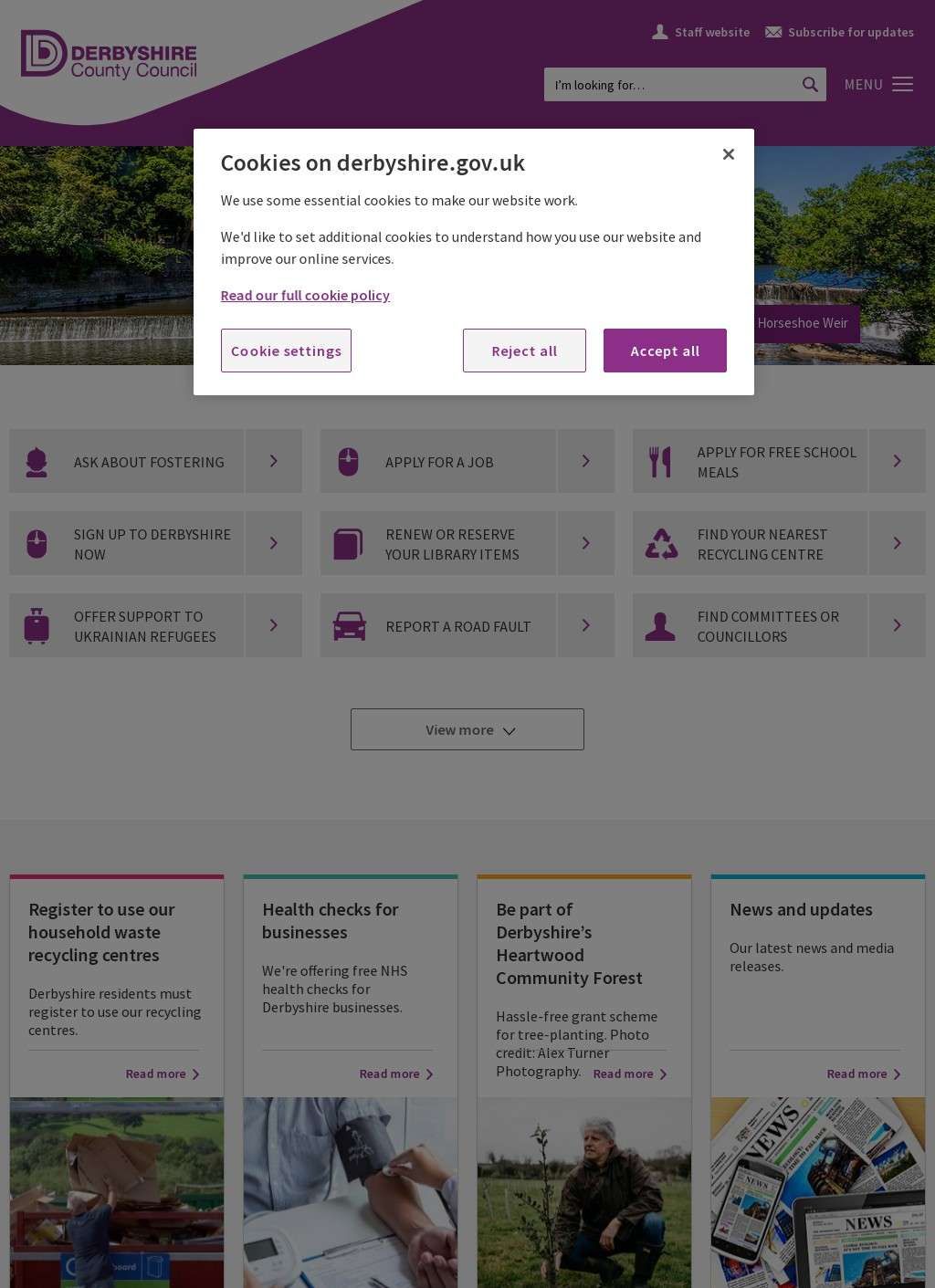Derbyshire County Council stands as the primary administrative body for the non-metropolitan county of Derbyshire, working from its headquarters at County Hall in Matlock. This local authority serves a vast geographical area that stretches from the Peak District National Park in the north to the edges of the East Midlands in the south, managing public services for over 800,000 residents across diverse communities ranging from rural villages to bustling market towns.
The council's responsibilities encompass a comprehensive range of vital public services that directly impact residents' daily lives. Education remains one of their core functions, overseeing hundreds of schools across the county, from primary through to secondary education, whilst also managing special educational needs provision and adult learning programmes. Their education teams work closely with schools to ensure high standards of teaching and learning, coordinate school admissions, and provide support services that help young people achieve their potential regardless of background or circumstances.
Social care services form another crucial pillar of the council's work, with dedicated teams providing support to vulnerable children, adults with disabilities, and elderly residents who need assistance to maintain their independence. The council operates numerous care facilities and coordinates with private providers to ensure comprehensive coverage across the county. Their safeguarding teams work tirelessly to protect children at risk, whilst adult social care services help thousands of residents access the support they need, whether that's residential care, home help, or specialised equipment to aid daily living.
Transport infrastructure management represents a significant portion of the council's budget and operational focus. With responsibility for maintaining thousands of miles of roads, countless bridges, footpaths and cycle routes, the highways teams coordinate everything from routine pothole repairs to major road improvement schemes. During winter months, their gritting operations become particularly vital, with fleets of vehicles treating priority routes to keep Derbyshire moving despite challenging weather conditions. The council also oversees public transport coordination, working with bus operators to maintain essential services to rural communities that might otherwise face isolation.
Environmental services managed by the council include the operation of household waste recycling centres throughout the county, where residents can dispose of items not collected through regular kerbside services. These facilities accept everything from garden waste to electronic equipment, playing a crucial role in the county's recycling efforts. The council has recently introduced a registration system for these centres to better manage usage and ensure they remain accessible to Derbyshire residents. Their waste reduction initiatives include educational programmes in schools and communities, promoting sustainable practices that help reduce the county's environmental footprint.
Economic development initiatives form an increasingly important aspect of the council's work, particularly in supporting local businesses and attracting investment to the region. Their economic development teams work with partners across the public and private sectors to create conditions for growth, whether through infrastructure improvements, skills training programmes, or direct business support services. The council has been instrumental in securing funding for regeneration projects in former mining communities, helping these areas transition to new economic opportunities whilst preserving their unique heritage and character.
The democratic structure of the council ensures representation from communities across Derbyshire, with elected councillors making decisions on behalf of their constituents. Regular council meetings, held at County Hall and streamed online, allow residents to observe the democratic process in action. The council maintains various committees focusing on specific areas like planning, health and wellbeing, and audit, ensuring detailed scrutiny of all major decisions. Public consultation forms a key part of their decision-making process, with residents regularly invited to share views on everything from budget priorities to local service changes.
Community engagement remains at the heart of the council's approach to service delivery. Through their network of area forums and parish council partnerships, they maintain close connections with local communities, understanding their specific needs and priorities. The council's community safety teams work with police and other partners to address local concerns, whilst their public health initiatives tackle issues from obesity to mental wellbeing through targeted programmes and campaigns.
Digital transformation has become increasingly important to the council's operations, with online services allowing residents to report issues, apply for services, and access information 24/7. Their website serves as a comprehensive portal for everything from school admissions to planning applications, whilst social media channels provide real-time updates on service disruptions and community news. The council's commitment to digital inclusion ensures that those without internet access can still access services through libraries and community centres.
Looking ahead, the council faces both challenges and opportunities as it adapts to changing demographics, climate concerns, and evolving government policies. Their strategic plans focus on building resilient communities, improving health outcomes, and creating a sustainable future for Derbyshire. Recent initiatives include the Heartwood Community Forest project, offering grants for tree-planting to combat climate change, and partnerships with health services to provide free NHS health checks at businesses across the county, demonstrating their innovative approach to public service delivery in the 21st century.
